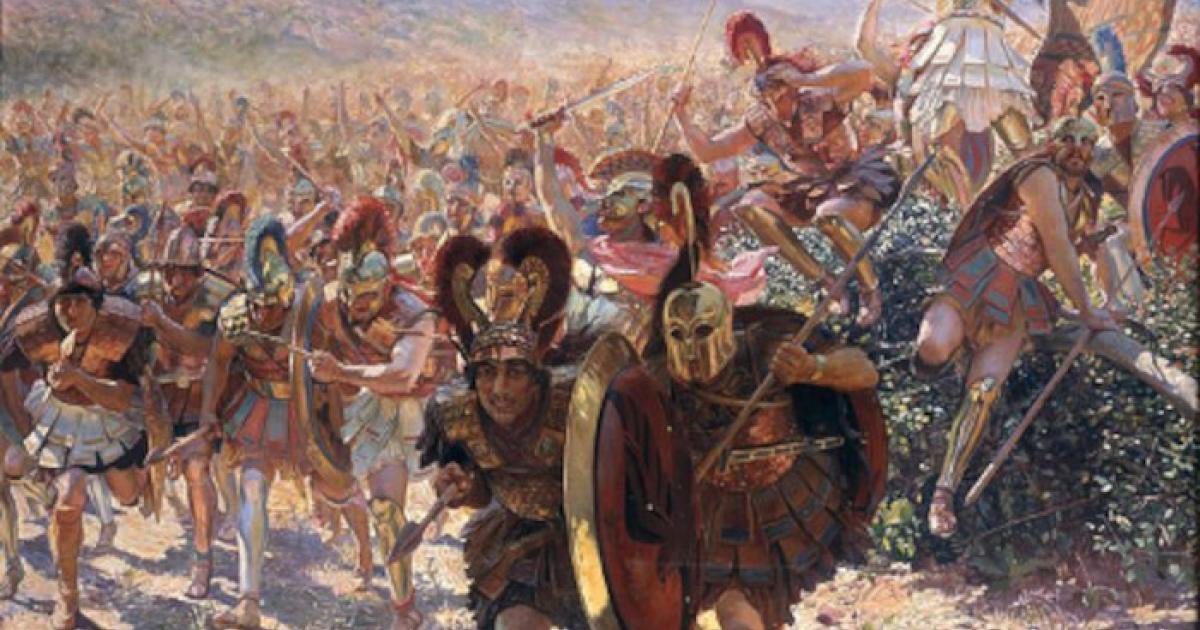A Thread on Blitzkrieg Myth
Popular histories of World War Two love to talk about a German strategy known as "Blitzkrieg" - supposedly an innovative, high speed, overwhelming attack, responsible for their early successes.
Only one problem: Blitzkrieg isn't real. (1)
Popular histories of World War Two love to talk about a German strategy known as "Blitzkrieg" - supposedly an innovative, high speed, overwhelming attack, responsible for their early successes.
Only one problem: Blitzkrieg isn't real. (1)
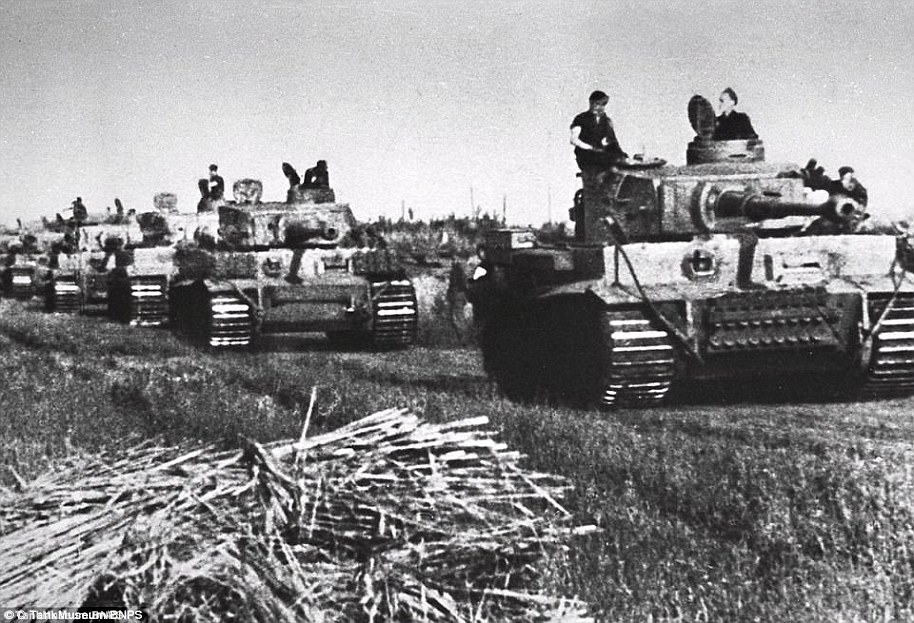
"Blitzkrieg", which means "Lightning War", was never a term that the German military used to describe their approach to war. The term was invented by western journalists, mainly to try to explain why Germany was winning so easily. Germany only used the term in propaganda. (2) 
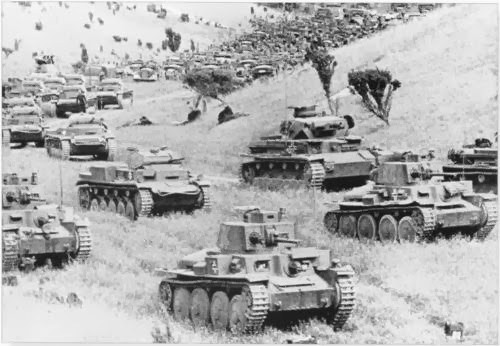
The Germans themselves definitely did not think of Blitzkrieg as a real military concept. Hitler called it "a completely idiotic word." Nor did the Wehrmacht think of itself as pioneering some entirely new approach to warfare.
So what were the Germans actually doing? (3)
So what were the Germans actually doing? (3)
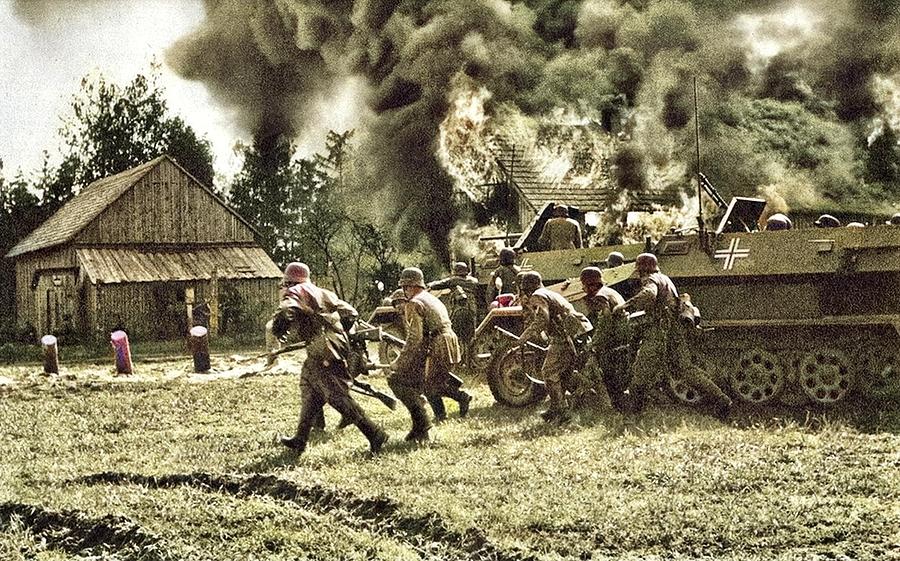
The Wehrmacht conceived of itself as simply applying a long established German approach to war - not Blitzkrieg, but what they called "Bewegungskrieg": the War of Movement.
Let's take a look at this centuries old German theory of warfighting. (4)
Let's take a look at this centuries old German theory of warfighting. (4)
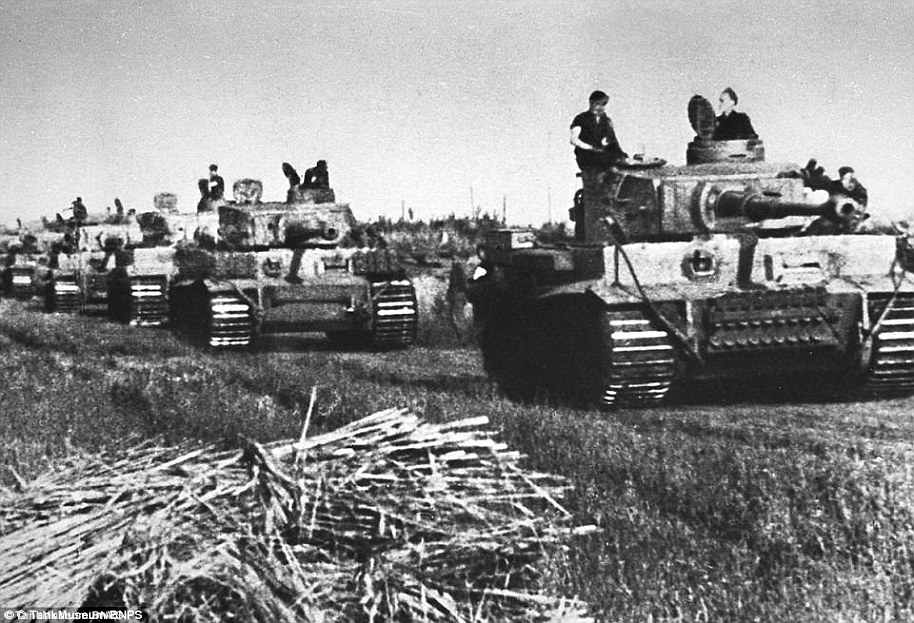
Let's go all the way back, to famous Prussia. Prussia was an interesting little state. Formally Brandenburg-Prussia, its geography did not suggest a great power in the making. It was small, with bad soil, a small population, and an exposed position in the heart of Europe. (5) 
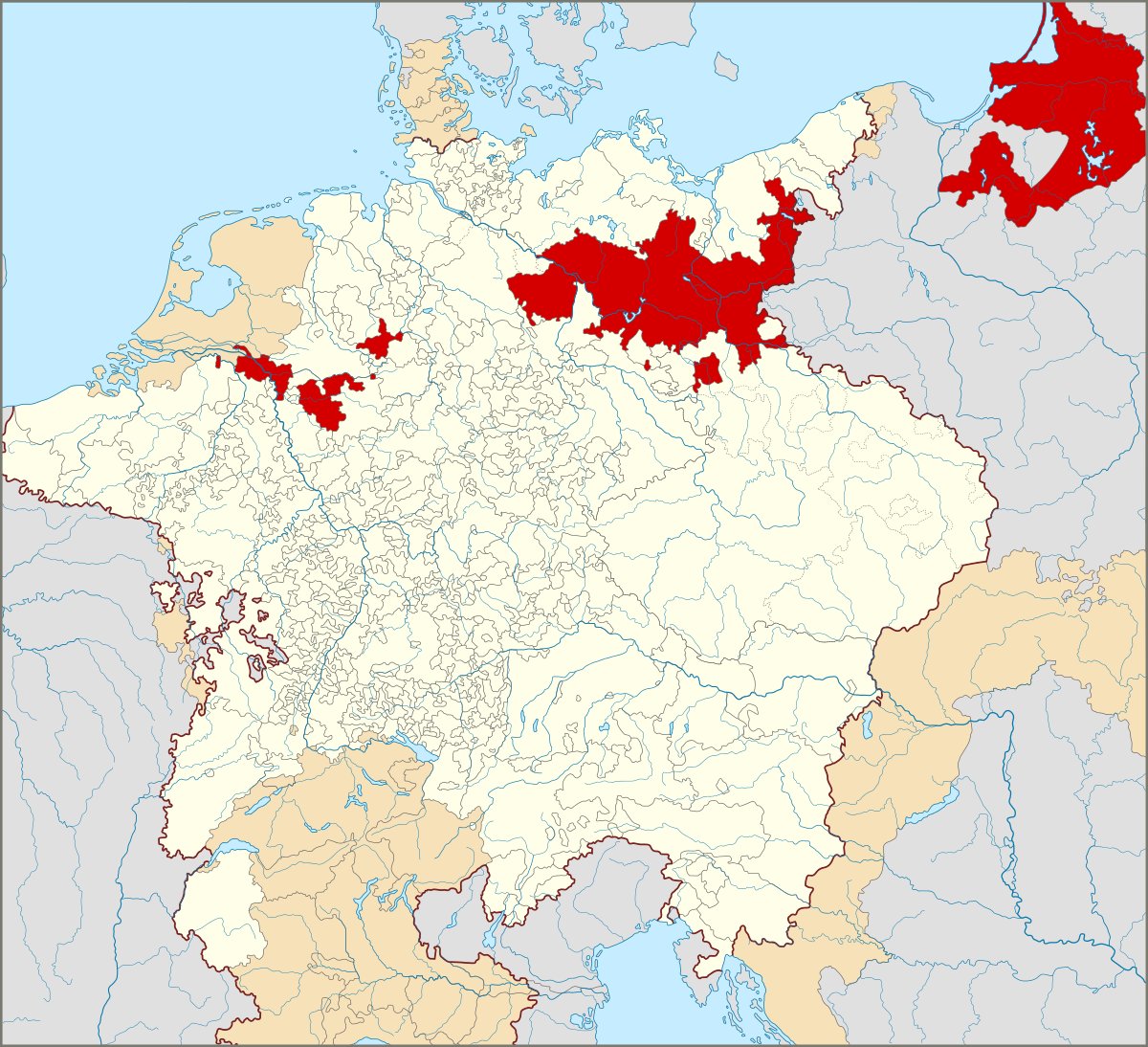
The Hohenzollern rulers of Prussia were ambitious. But how could a tiny state like this hope to compete in the geopolitical arena? The answer was clearly to devise a warfighting approach that could compensate for Prussia's weaknesses. (6)
Because Prussia was small, sparsely populated, and poor relative to its competitors, its leaders knew that it had no chance of surviving in protracted wars of attrition. It would simply be ground to dust by superior enemy resources. (7) 
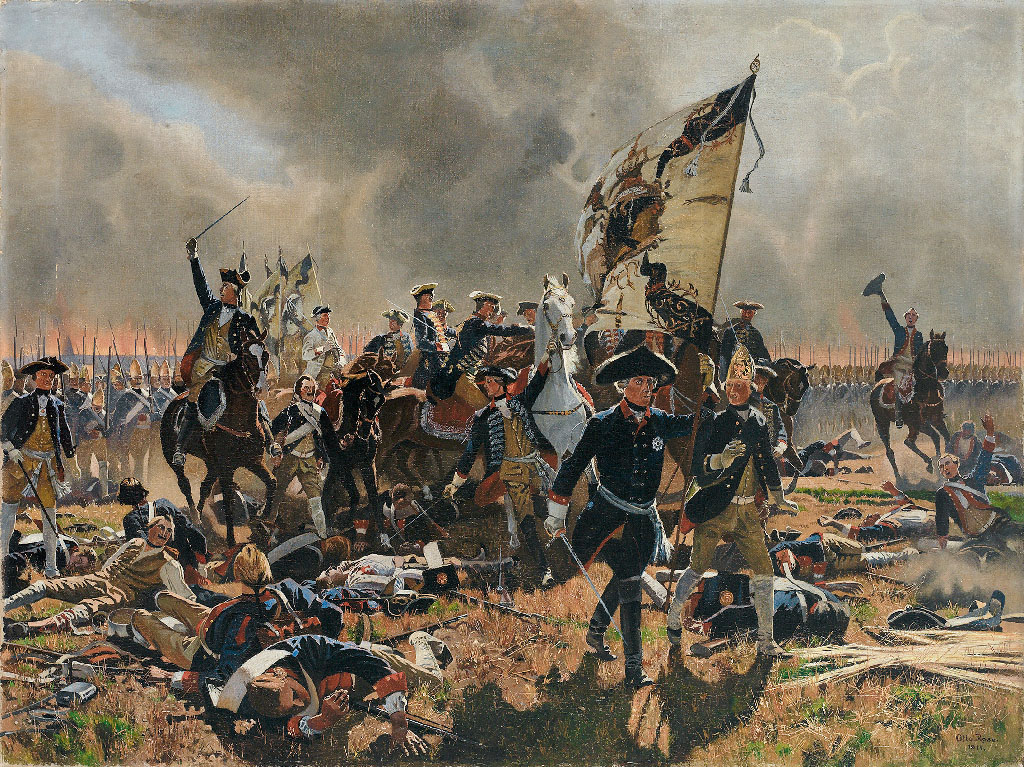
The solution was to prioritize battlefield aggression, so that the enemy could be brought to grips and defeated in a single decisive battle. This would create wars that were, as the Prussians put it, "kurz und vives" - Short and Lively! (8) 
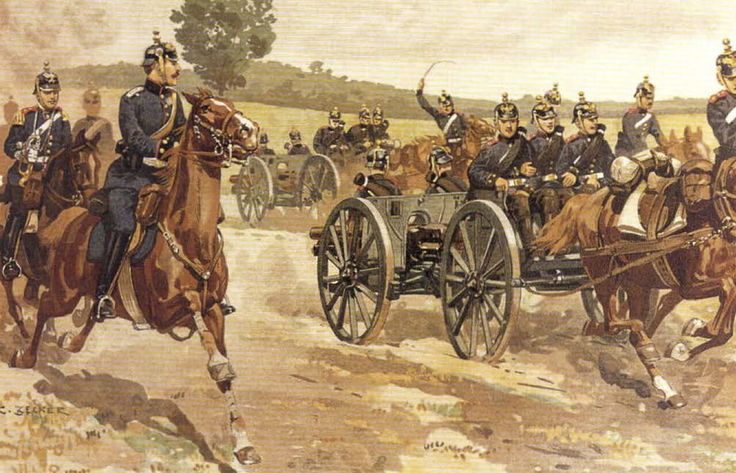
To this end, Prussian armies were drilled relentlessly. They were known for being able to deploy into formation faster than their enemies, and for the pace of their reloading. In an era where most armies could fire 2 or 3 musket volleys per minute, the Prussians could do 5. (9) 
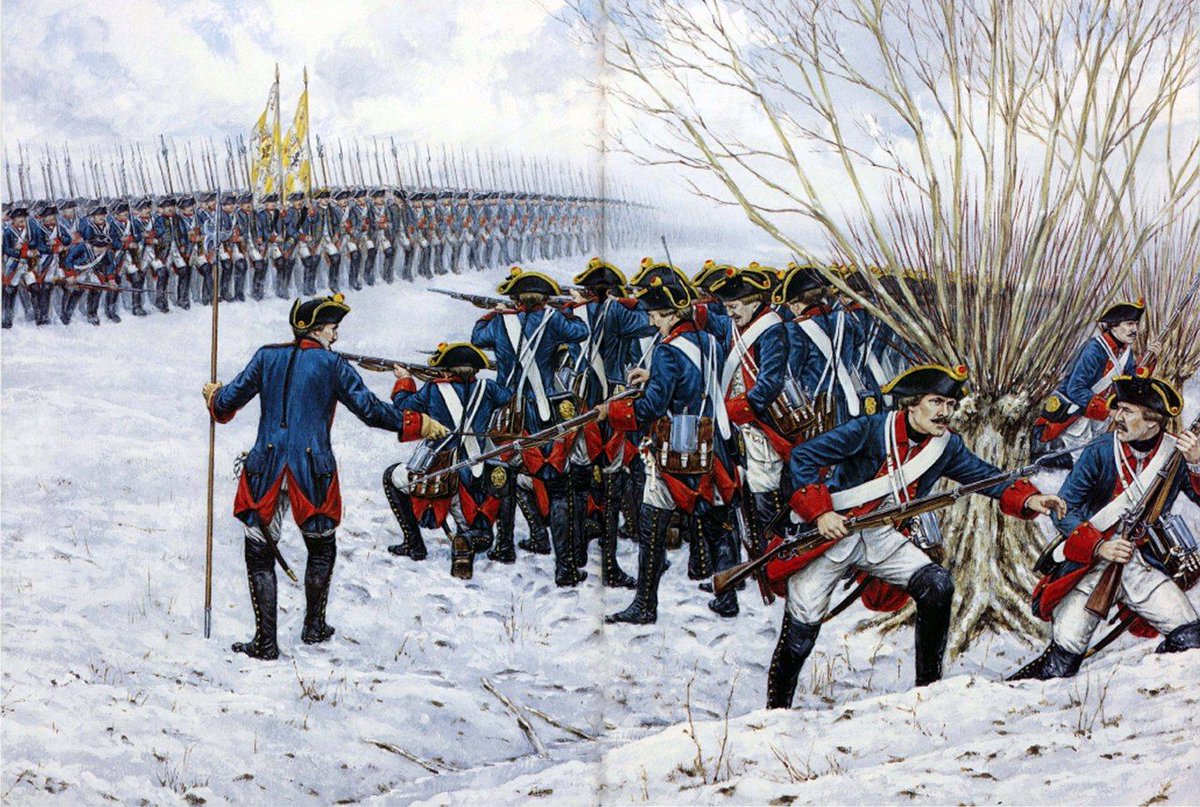
But Prussia's warfighting theories went beyond simply leveraging more firepower out of the infantry. They also greatly prized operational aggression: the movement of large units, with the intention of seeking a decisive engagement with the enemy. (10) 
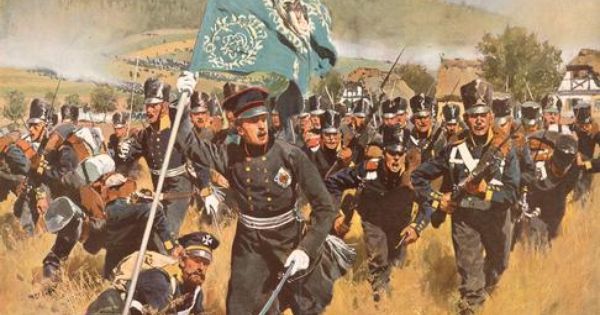
Prussian Generals were fanatical about seeking out decisive battle. The job of Prussian officer was simple: march at high speed towards the enemy, find him, and attack immediately. As Fredrick the Great famously said:
"The Prussian army always attacks." (11)
"The Prussian army always attacks." (11)
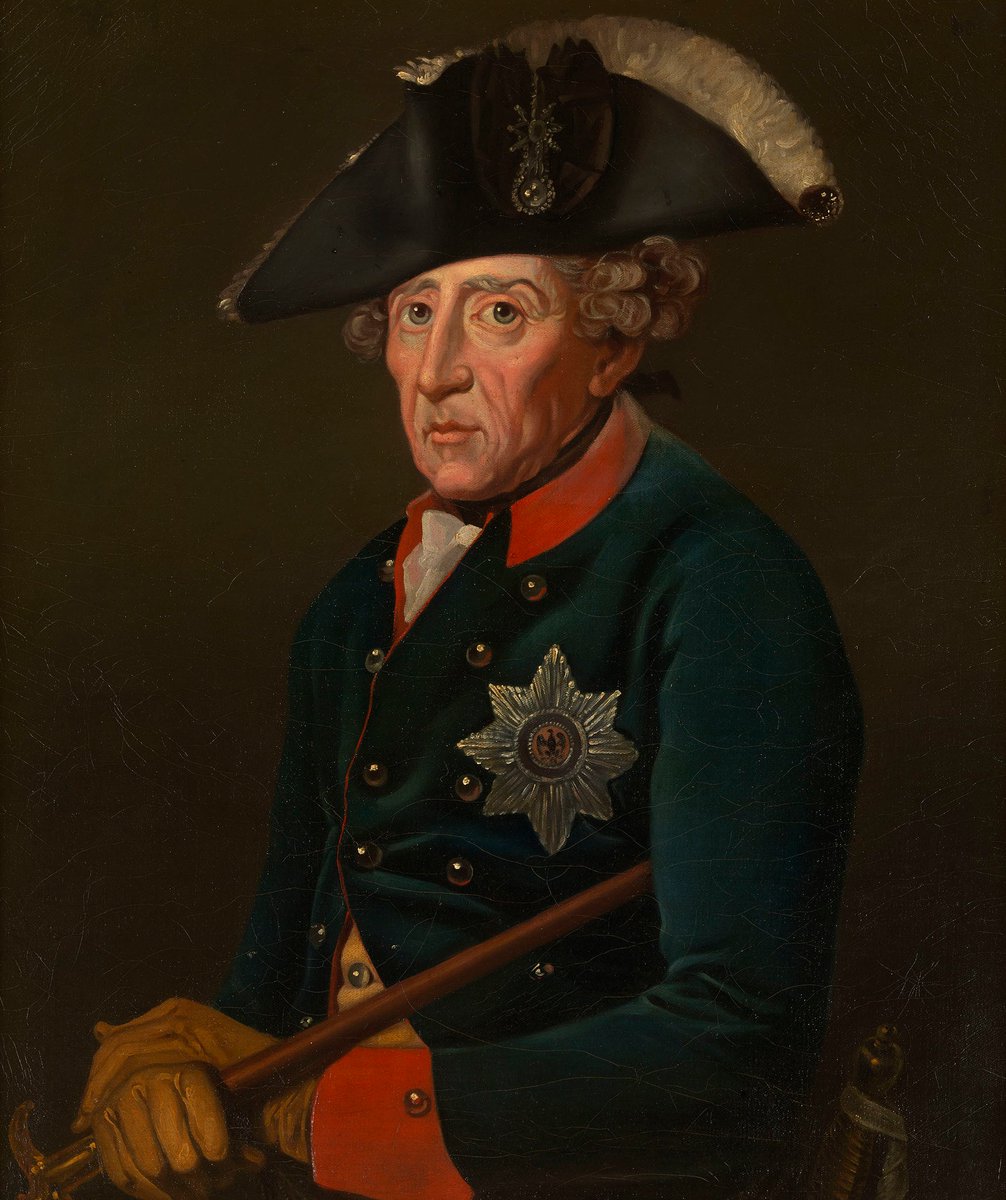
This extreme aggression was perhaps best personified in the Napoleonic era commander, Marshal Gebhard von Blücher. Nicknamed "Marshall Forward" by his men, he famously never asked about the enemy's strength or intentions. He only asked one question: "Where is the enemy?" (12) 
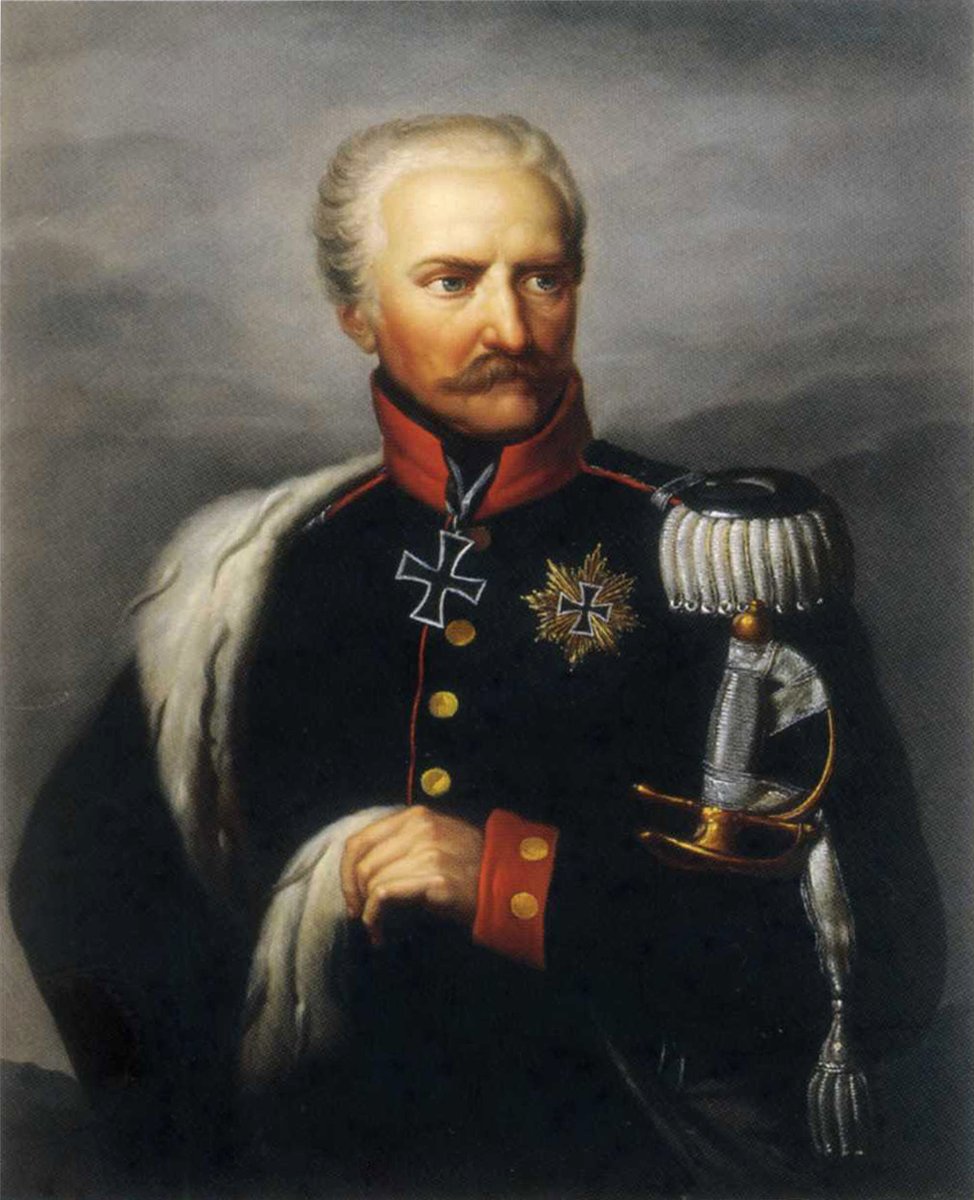
To recap, we can identify three different aspects of Prussian war-making:
1) A focus on concentrated firepower
2) Bold maneuver of large formations with intent to operationally compromise the enemy
3) Commanders that were taught to prioritize aggression and the attack
(13)
1) A focus on concentrated firepower
2) Bold maneuver of large formations with intent to operationally compromise the enemy
3) Commanders that were taught to prioritize aggression and the attack
(13)
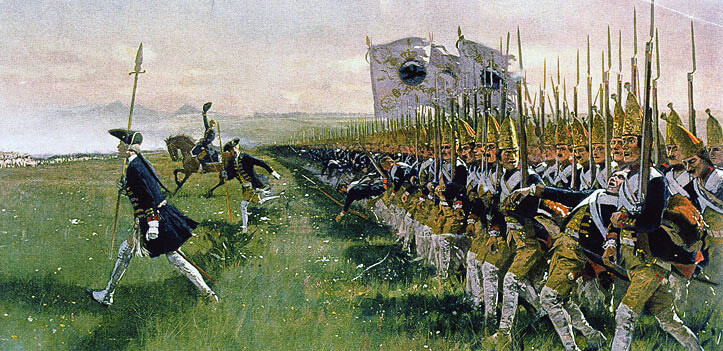
The ultimate goal of all of this was to move the bulk of the army into an operationally valuable position (such as the enemy's flank, or rear area) and then attack with all possible force. Bewegungskrieg allowed Prussia to punch well above its weight class for centuries. (14) 
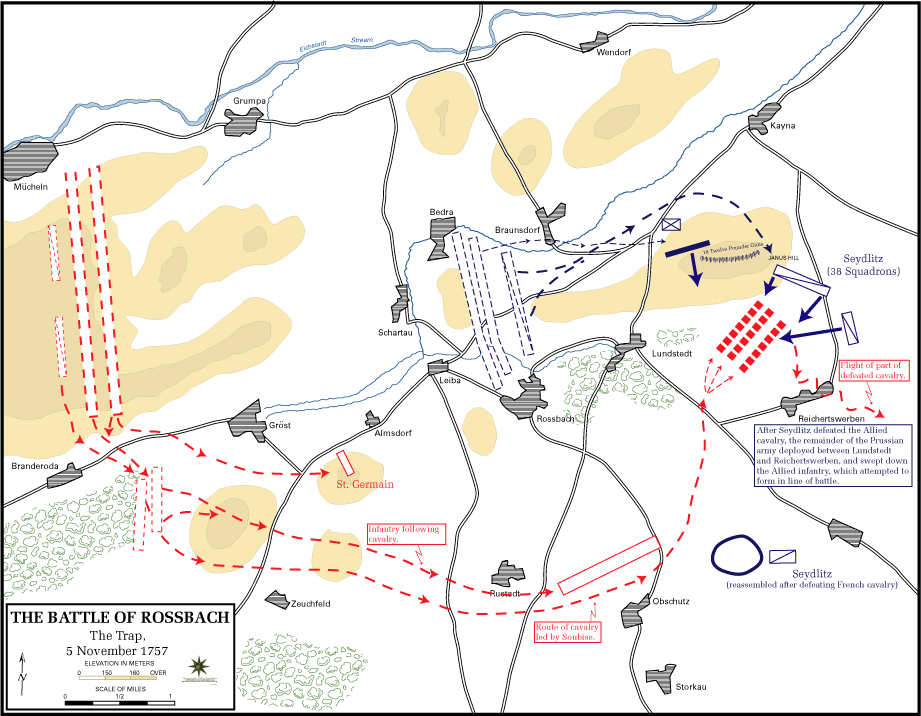
Over time, as war became more complicated and armies became larger, the Prussian commander was paired with a highly educated staff officer. The commander still pursued aggressive maneuvers, while the staff officer advised and managed the technical, logistical concerns. (15) 
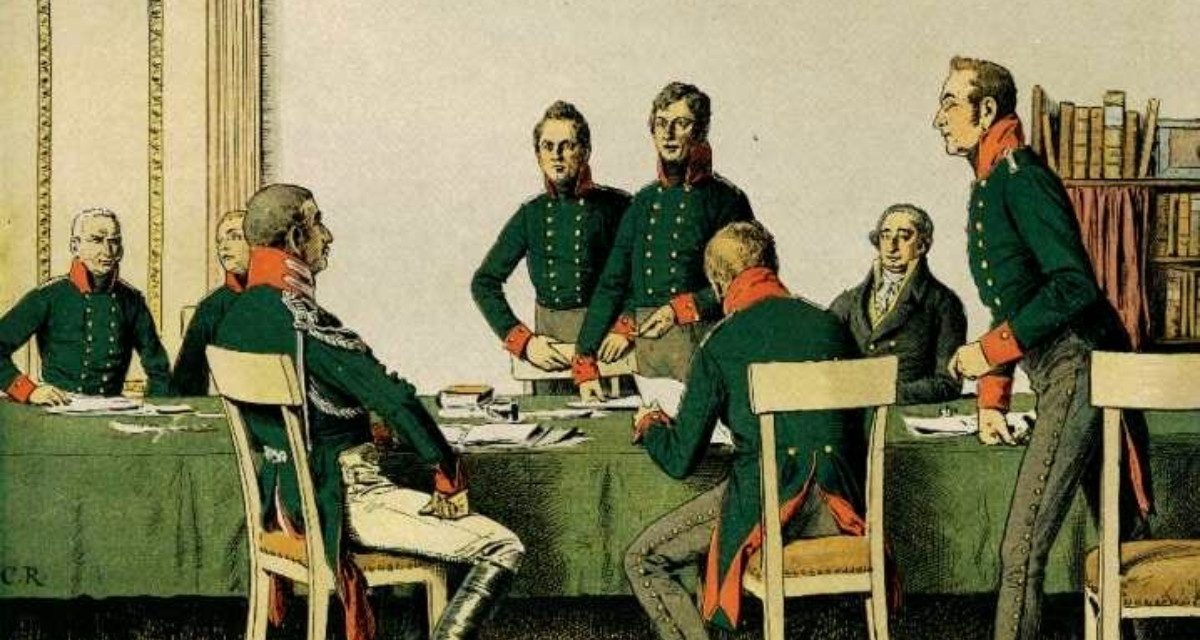
In other words, the Commander wove his operational vision, while the staff officer implemented it in light of distances, topography, and logistics.
The combination of the action-oriented commander and the technical expertise of the staff officer was extremely effective. (16)
The combination of the action-oriented commander and the technical expertise of the staff officer was extremely effective. (16)
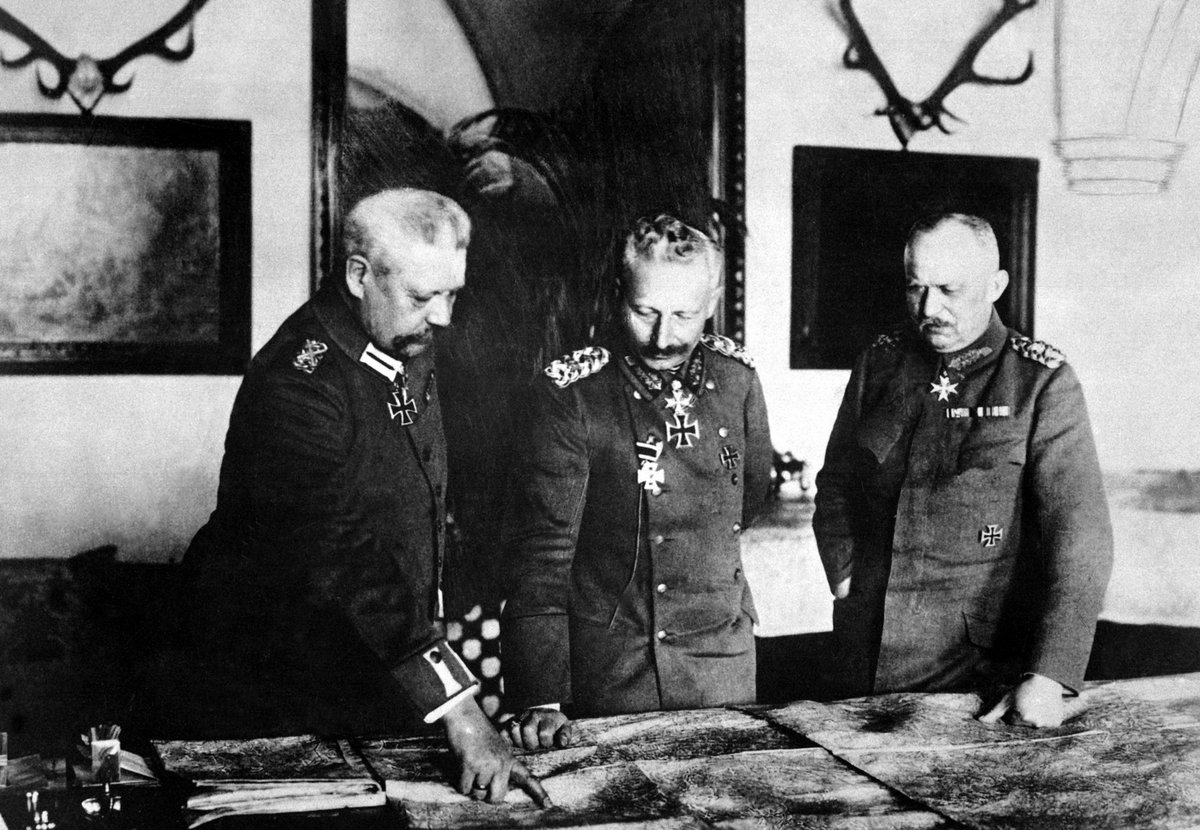
World War One brought an abrupt end to Prusso-German dreams of Bewegungskrieg. The defensive power of artillery, trenches, and barbed wire made operational maneuver nearly impossible. Instead of a war of movement, Germany was forced into their nightmare: a war of attrition. (17) 
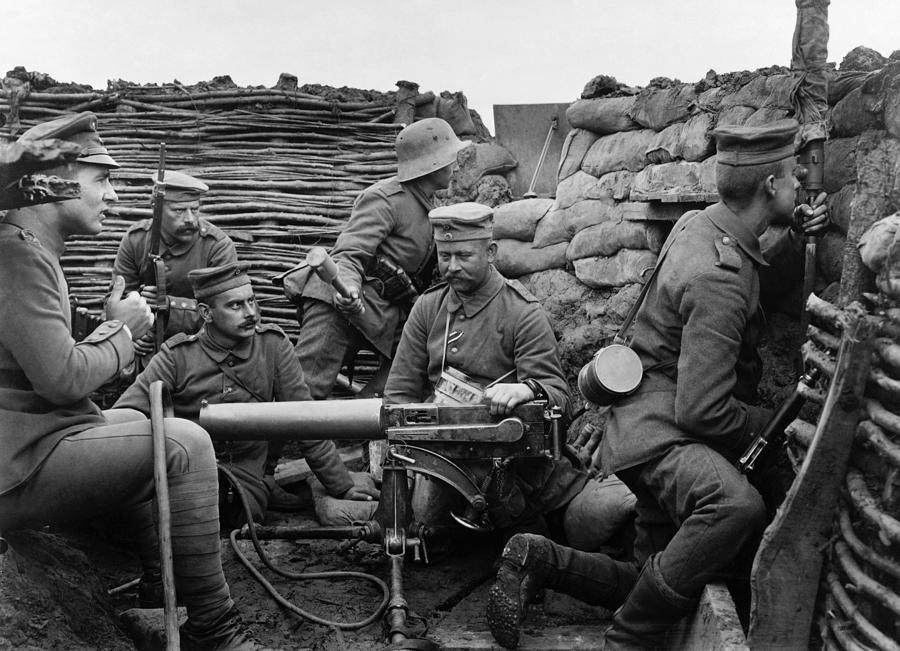
In the interwar period, however, the development of new weapons systems like tanks, aircraft, and motorized infantry allowed Germany to return to Bewegungskrieg. It was once again possible to effectively maneuver large units on the operational scale. (18) 
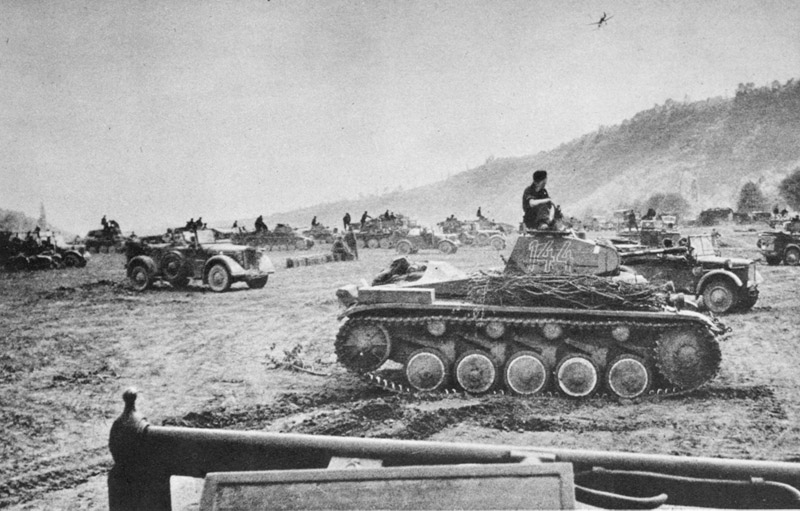
Crucially, however, the Germans did not view themselves as inventing something new. Rather, they believed that modern technology had simply restored their traditional approach to war. They were practicing traditional Bewegungskrieg, not "Blitzkrieg." (19) 
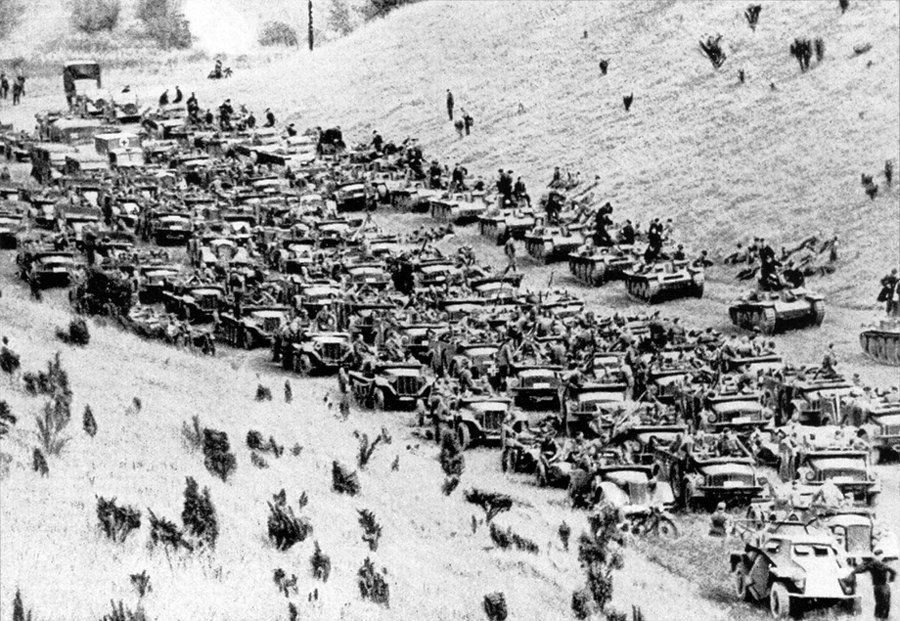
Many of the greatest commanders of the Wehrmacht, like Manstein, Kluge, and Guderian, were not just German, but specifically descendants of Prussian military families. They attended military academies that taught the historical Prussian approach to war. (20) 





Ultimately, Bewegungskrieg failed to win the war for Germany because of the Soviet Union's power to mobilize fresh units and remain in the field as a fighting force. The Wehrmacht aimed to destroy the Red Army's fighting power in decisive battle. This was impossible. (21) 
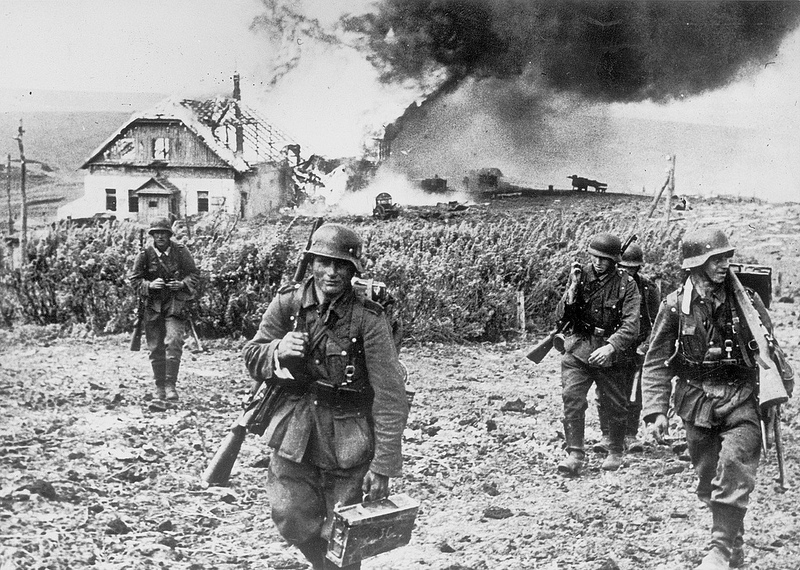
Now, why is this relevant today?
We've seen many people over the last few months talk about Russia attempting their own "Blitzkrieg" in Ukraine. Right off the bat, you should know that anyone who says this isn't serious. Blitzkrieg is a nonsense term. (22)
We've seen many people over the last few months talk about Russia attempting their own "Blitzkrieg" in Ukraine. Right off the bat, you should know that anyone who says this isn't serious. Blitzkrieg is a nonsense term. (22)
Furthermore, Russia is clearly not attempting a Bewegungskrieg style penetration in depth in the Donbas; they are proceeding methodically, making full use of their advantages in firepower and mobility, and carefully shaping the battlefield. (23)
Ultimately, we must understand that armies fight wars on the basis of their own doctrines, which develop over time in response to specific challenges and experiences. Bewegungskrieg was the Prussian attempt to overcome specific Prussian problems. (24)
Learning to think intelligently about military theory and operational doctrines will allow us to view the situation in Ukraine more clearly, and avoid lazy, sloppy characterizations.
Please stop using the word Blitzkrieg. It's not real. (25)
Please stop using the word Blitzkrieg. It's not real. (25)
Coda, as usual, to clarify the point: The lesson isn't that people need to say "Bewegungskrieg". Blitzkrieg rolls off the tongue better, and has common parlance in English. The point is to think about how warfighting doctrine evolves and incorporates technology.
• • •
Missing some Tweet in this thread? You can try to
force a refresh




